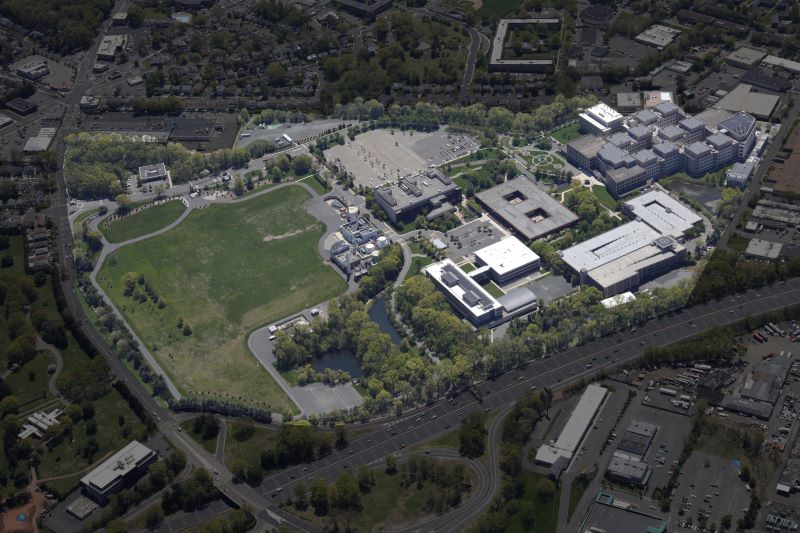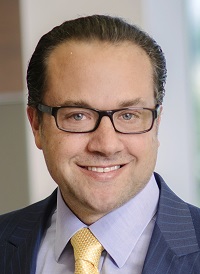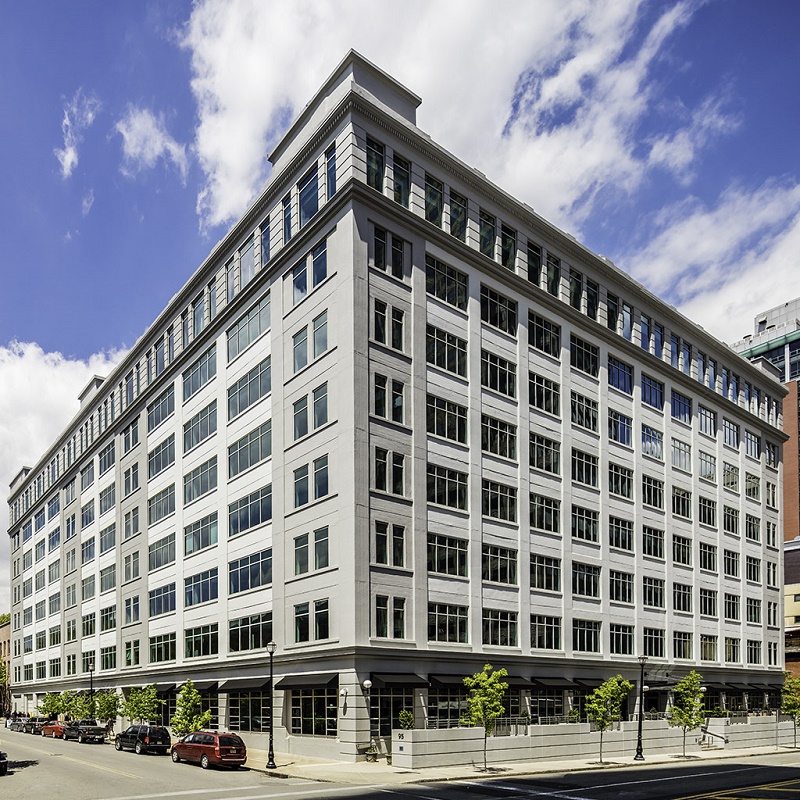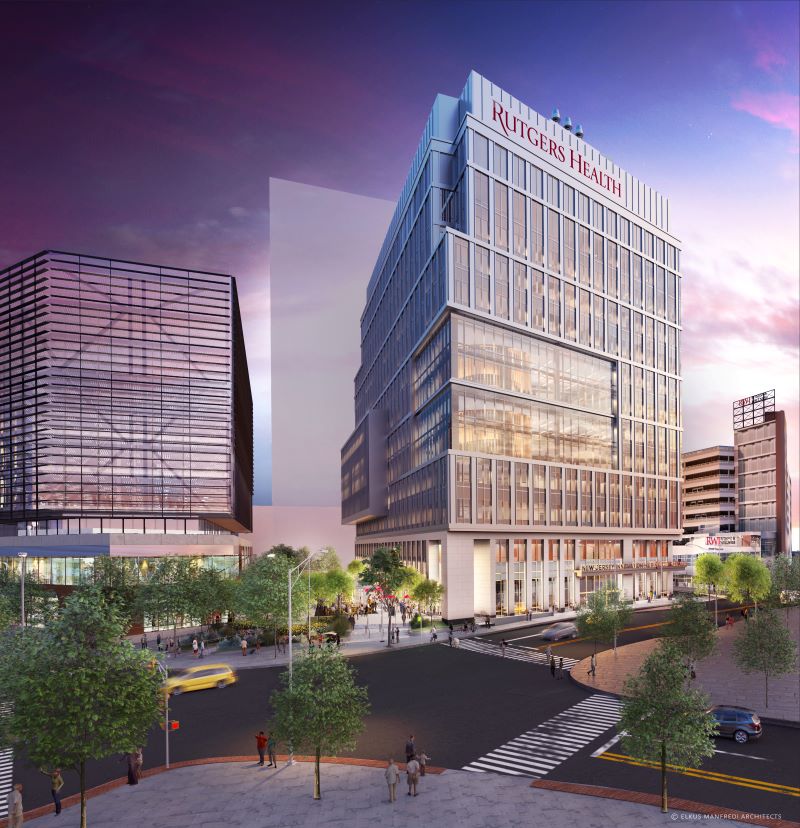Turnkey, high-end life sciences space remains in high demand in New Jersey, creating an opportunity for owners of the state’s few remaining legacy pharmaceutical campuses or those that can find other ways to create new space without building speculatively.
By Joshua Burd
It wasn’t for a lack of interest in the life sciences sector, according to Onyx Equities’ John Saraceno, whose firm has resisted the urge to convert some of New Jersey’s largest, best-located office campuses to the type of lab and research space that is hard to find in the state. In those cases, he said, the demand for top-tier office space was high enough to merit the less complex, less costly option of simply upgrading those spaces for traditional users.
That only added to the appeal of the 108-acre Merck & Co. campus in Kenilworth, which Onyx acquired earlier this year under a joint venture with Machine Investment Group.

“We have office buildings on that site, but almost a million and a half square feet to two million feet is already built and designed as lab, life sciences and manufacturing space, which just doesn’t exist in the state,” said Saraceno, a co-founder and managing principal with Onyx. “And now it’s not a function of conversion or convincing ourselves or fighting off an office tenant, because they’re not office buildings, so now we can implement a strategy that we’ve sort of trained for and practiced for 10 years.”
It’s a reminder of the sustained demand for turnkey, high-end life sciences space — from established pharmaceutical and biotech firms, startups and a growing pool of international players — in an asset class that is seemingly underserved in New Jersey despite its deep talent pool and history of innovation. According to JLL, direct asking rents at Class A lab space averaged $66.40 per square foot at year-end 2022, compared with $29.54 overall, while top-quality options are limited to just a handful of properties in the state.

That has created an opportunity for owners of the few remaining legacy pharmaceutical campuses in the state, where they can offer second-generation space built by the likes of Merck, Sanofi and Bristol-Myers Squibb. The same is true for those that can successfully convert office buildings or find other ways to create new space without building speculatively, which is cost-prohibitive, while still meeting tenants’ need for speed to market.

“On pure lab absorption, I would say our market is very healthy,” said Jason Benson, a broker and senior vice president with JLL, noting that established companies are expanding their lab footprint in the state. Others are looking to come from markets such as Manhattan and Brooklyn, he said, “needing to scale their operations and recognizing that the talent that they’re looking to hire is living here in New Jersey.”
Saraceno said Onyx was “receiving a pretty significant inflow of calls and interest, as many as I’ve seen in my career relative to a new acquisition that we did.” That interest has run the gamut of size and user type, he said, citing pent-up demand and the lack of move-in-ready space in not just New Jersey, but also New York and Philadelphia.

“The convergence of life science and technology is booming right now in New Jersey, making our state a hub for research, innovation and long-term opportunity,” said Jon Schultz, Onyx’s other co-founder and managing principal. “This transformative 100-plus acre campus will introduce a unique multi-building mix of institutional-quality laboratories, support facilities and office space, positioning us at the industry’s epicenter.”
Saraceno also pointed to the “novelty” of a location that has never been available for outside tenancy and has been owner-occupied for decades, first by Schering-Plough Corp. and then by Merck. That has drawn some interest from users who say they’ve “heard historically that Merck had the best of the best from the standpoint of their infrastructure. And even if we don’t have a requirement today, we want to see it because, if we have a requirement two or three years from now, we want to know what’s available in that location.”
“We’ve seen a fairly wide range,” Saraceno said. “(For) some of them, the names you would know. Some of them, you wouldn’t, but they’re all very sizable firms.”
Owners such as Vision Real Estate Partners and Rubenstein Partners have captured that demand at existing office properties, thanks in part to a tenant’s willingness to convert the space to a functional life sciences facility. At a campus in Warren, which the firms have owned since 2016, PTC Therapeutics is in the midst of a build-out that will include offices, collaboration and conferencing spaces and research labs, under a 360,000-square-foot lease spanning 400 and 500 Warren Corporate Center Drive.

Similar projects in New Jersey have been mostly tenant-driven to date, market experts say, while cautioning that not every office building has the design and infrastructure needed to support pharmaceutical or manufacturing. But landlords that are willing to retrofit a building on spec, or at least prepare a core and shell, are likely to reap the rewards. In Jersey City, Thor Equities Group recently secured a 28,089-square-foot lease with EpiBone Inc., a clinical stage company that grows bone and cartilage for skeletal reconstruction. The deal followed Thor’s effort to create lab-ready space at the 350,000-square-foot building at 95 Greene St. — a former Colgate-Palmolive manufacturing facility — including extensive upgrades to mechanicals, HVAC, vertical conduits and a new rooftop generator.

“In our opinion, you can’t talk about it — you have to actually make the improvements to make the building lab-ready and really convince a tenant that they can go there,” said Dan Loughlin, a vice chairman with JLL, who leads the firm’s life sciences practice group. Doing so requires a significant investment in mechanical systems and utility infrastructure, he said, “and what we’ve seen is that people that propose it conceptually have not been successful.
At 95 Greene, he added, “Thor made that MEP infrastructure investment — and we’re making deals there now.”
New Brunswick Development Corp., or Devco, hopes to find something of a middle ground at a massive mixed-use project in New Brunswick that is set to break ground later this year. The first phase of what’s known as the HELIX, or the New Jersey Health + Life Sciences Exchange, will include roughly 170,000 square feet of incubator and research space that will be used by the project’s anchor tenants — including Rutgers University, Hackensack Meridian Health and RWJ Barnabas Health — as well as startups and entrepreneurs. Devco President Chris Paladino said the team recently adapted its plan to now include closed lab spaces of about 3,000 square feet, citing the demand from startups that will quickly expand from three or four employees and will need additional benches, plus conference, office and support space.

What’s more, he said, Devco has fielded inquiries from established companies — some of which may be partnering with Rutgers — that need a private research space ranging from 2,000 to 5,000 square feet. Such a space would likely complement the other uses inside the planned 12-story, 573,400-square-foot building, which will also be the new home of the Rutgers Robert Wood Johnson Medical School and a nearly 250,000-square-foot Rutgers Translational Research Facility.
“We’ve tried to build in flexibility,” Paladino said, noting that the second phase of the HELIX calls for a large lab and office building, which is also drawing interest. A lease with an anchor tenant would allow Devco and its joint venture partner to break ground on what could be a roughly 500,000-square-foot building, providing the infrastructure for additional lab users in the 10,000- to 75,000-square-foot range, he estimated. That would create a home for startups that outgrow both their incubator space and the suites that Devco will offer in the first phase.
“I think we’re going to fit a number of niches,” Paladino said. “The one thing I am absolutely certain of is, within six months of opening, I’m going to say, ‘Boy, I wish we had built more,’ because there is insatiable demand at the moment for laboratory space.”

Lab users’ need for flexibility and room to grow has been critical at several of New Jersey’s legacy pharmaceutical campuses — in Bridgewater, Nutley and Hopewell, among others — which have accommodated tenants of all sizes. That demand is likely to continue for the next wave of life science facilities in the state, JLL’s Dan Spero said.

“Those campuses need some anchors, but by the time those anchors have established, there’s also companies that have taken 5,000 to 10,000 square feet,” said Spero, a senior managing director with the firm. “And it’s important to be able to accommodate all of them, because you never know when that 5,000-foot tenant is going to turn into a 500,000-foot tenant.
“We didn’t have a lot of good, small tenant spaces. And with the opening of these campuses, it’s allowed for some of those smaller tenants to establish and grow here.”










